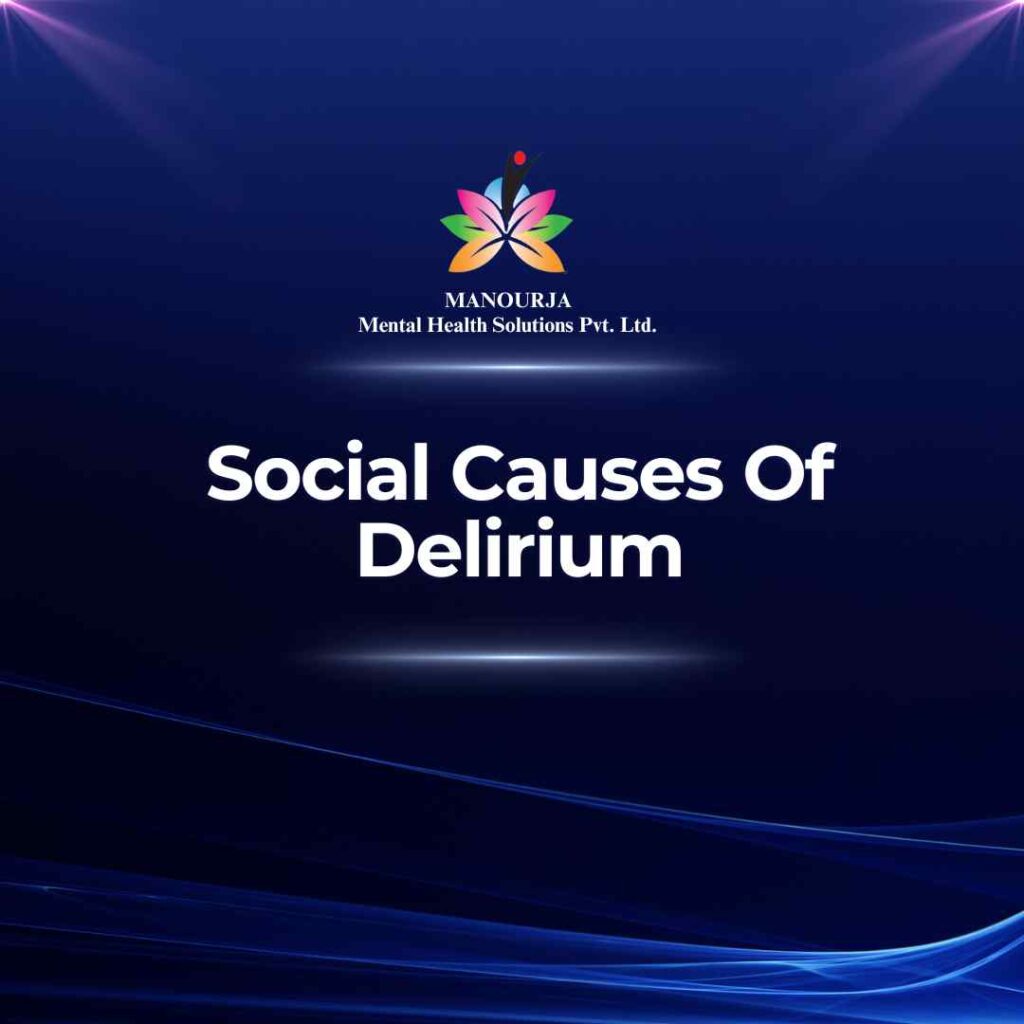Social Causes of Delirium

Social factors can play a significant role in the development or exacerbation of delirium, influencing an individual’s susceptibility and overall well-being.
Social causes of delirium may include:
- Isolation and Loneliness: Social isolation and a lack of meaningful social interactions can contribute to the development of delirium. Individuals without a strong support system may be more vulnerable.
- Loss of a Loved One: The death or separation from a close family member or friend can be a powerful social stressor, potentially triggering or worsening delirium, especially in those who are emotionally sensitive.
- Caregiver Stress: The strain experienced by individuals providing care to someone with a chronic illness or cognitive impairment can contribute to the development of delirium. The caregiver’s emotional and physical well-being is crucial for the patient’s stability.
- Changes in Living Environment: Moving to a new or unfamiliar environment, such as a hospital or long-term care facility, can be socially disorienting and contribute to delirium, particularly in older adults.
- Lack of Social Support: A diminished social network and inadequate support from family or friends can increase the risk of delirium. Having a strong social support system is protective against the onset of this condition.
- Cultural Factors: Cultural beliefs and practices may influence an individual’s perception of their environment and contribute to the development of delirium. Understanding and respecting cultural differences is essential in providing appropriate care.
- Communication Barriers: Difficulty in effective communication, such as language barriers or impaired hearing, can contribute to social isolation and increase the risk of delirium, especially in healthcare settings.
- Financial Strain: Economic difficulties or financial stress can impact an individual’s social well-being, potentially leading to delirium. Financial stability contributes to a sense of security and social support.
- Disruption of Routine: Sudden changes in daily routines, whether due to illness, hospitalization, or other factors, can be socially disorienting and contribute to the development of delirium.
- Limited Social Engagement: Lack of participation in social activities or engaging in stimulating interactions may increase the risk of delirium. Regular social engagement is important for maintaining cognitive function.
Addressing social causes involves recognizing and mitigating the impact of these factors on an individual’s well-being. Providing adequate social support, maintaining familiar routines, and understanding the broader social context are essential in the prevention and management of delirium.
At MANOURJA, we believe in the transformative power of counseling. Our experienced therapists offer a safe and supportive space where you can explore your thoughts, emotions, and challenges. Through personalized counselling sessions, we’ll work together to develop coping strategies, build resilience, and achieve lasting positive change. Discover the path to a healthier, happier you with MANOURJA counselling services.
MANOURJA Rehabilitation Services
At MANOURJA, we’re dedicated to helping you in rebuild your life, after difficult times. Our rehabilitation services focus on understanding what you need to move forward, whether you’re recovering from addiction, trauma, or any psychological – social challenges. We create personalized plans, that are all about helping you, regain your strength and find hope again. With a caring team by your side, you’ll have the support to make real progress and take steps toward a brighter, healthier future.
